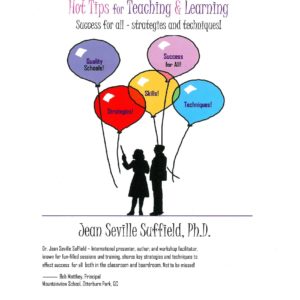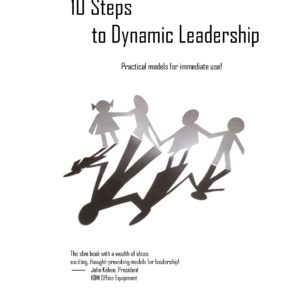This newsletter may help those in education think about ways to teach children of any age about how their brain works. Students are curious and love new words and complex plots as shown through the popularity of Lord of the Rings and the Harry Potter books.
Background: Returning to the classroom a few years ago to pilot the Brain Science Curriculum developed by Jesse Payne, Educational Director of the Amen Clinics, inc. [Brain Science Curriculum: Making a Good Brain Great!] Newport Beach, CA: Amen Clinics, inc., afforded me firsthand that wonderful experience of interrelating with twenty-five (25) smiling faces. I had the privilege of meeting Dr. Daniel Amen during conferences offered by Eric Jensen through the Jensen Learning Corporation.

Professor Corpus Callosum Says . . .
Human brains speak! Yikes! What next?
In the brain, cells talk to one another through the routine exchange of electrical signals. But when people fall into a deep sleep, the higher regions of the brain – regions that during waking hours is a bustling grid of neural dialogue – apparently lose their ability to communicate effectively, causing consciousness to fade.
Humans – Paying attention to their own blinking???? Not!!!
Blinking temporarily switches off parts of your brain, according to a recent study published in the latest issue of Current Biology. The research team found that the brain actively shuts down parts of the visual system each time you blink, even if light is still entering the eyes. Their findings could explain why you don’t notice your own blinks.
Aliens reveal how the brain uses ‘noise.’
A study out of the University of California has revealed how the brain uses “noise” to direct the body to make movements. The key factor is noise in the brain’s signaling system. This helps explain why all movement is not carried out with the same level of precision or exactness.
Aragorn finds an ‘evolving’ brain in Middle Earth.
University of Chicago researchers say they’ve discovered the human brain is apparently still evolving. In two related papers published in a recent issue of Science, they show that two genes linked to brain size are rapidly changing in humans.
The Battle in Middle Earth continues.
Researchers have identified areas in the brain that anticipate joy and fear and say they battle it out when a big decision is to be made.
Martians blind 1/20th of a second of each eye movement:
Because the brain is effectively blind during the one-twentieth of a second of each eye movement, subjects could not see the objects that were being substituted and were completely unaware that their visual world had been altered and that they behaved any differently. But their brains detected the difference. In tests following one or two hours of exposure to the altered world, subjects confused objects that had been swapped – in reliable and predictable ways. Subjects judged different objects to be the same object at different locations.
The Bluebanded Goby switches sex:
Like many fish species, the bluebanded goby switches sex in response to changes in its social environment. The brain enzyme “aromatase” influences this sex change.
The Brain plans muscle movement!
Researchers have discovered that a region of the brain that was formerly believed to control eye movement is actually involved in the high-level planning of movement. “Gain control” is used every day. For example, when you take a shower, you stick your hand in the stream of water to determine the temperature and adjust the controls back and forth until it’s just right. Without a gain-control system, you’d make the same adjustments back and forth, oscillating from hot to cold. You’d never achieve ‘just right.
See how many family members or friends know about this? Be the expert and help them out! Check out some hot tips
Hot Tips by Professor Corpus Callosum to student Miss Synapse
Professor Corpus Callosum knows that physical movement is important if you want to improve memory. So he has passed along a few “HOT TIPS” to one of his students, Miss Synapse.
“Why?” she asks.
The number and types of connections, like your name (synapse(s), in the human brain depends greatly on the richness of experiences you have. Are you passive, a couch potato or what some have said “lazy bones?” Watching TV and being inactive does not help your brain make connections. In other words, you are not stimulating your brain.
Professor Corpus Callosum offers this advice:
- the more you move or participate in physical activity, the better your brain is on creating and
remembering what you have learned
- movement releases a brain chemical involved in communication that helps you remember long term
“So, what can I do?” implores Miss Synapse.
“Here are some ideas,” answers Professor Callosum.
- take notes regularly while the teacher is teaching you
- ask for some outline of the main ideas of the lesson being presented to help you
- turn to a neighbour to check out answers when the teacher instructs you to do so
- pair up and re-teach what you think you just heard or understood
- use rhythm or movement to act out main ideas being learned
- create living sculptures or visual icons to capture main ideas
- engage in role-play
- plan and participate in debates
- create continuums to express personal opinions about certain issues
- use the library or computer to research opinions and see if they can be supported
- use “colours” to code your work to help you remember
- drink plenty of water
- have a list of activities or exercises you can do at your desk to re-energize your brain
Can you think of others? Keep a running list in your Brain Science notebook.
Biographical Profile of Jean Seville Suffield, DNM
With her experience in business and the many years in educational administration, Dr. Jean has gained a wealth of knowledge and acquired innumerable strategies in working with people throughout the world with schools and leadership being close to her heart. Dr. Jean particularly enjoyed playing a key role in the 1st Glasser Quality School, Rochester School [Bogotá, Colombia] recognized by William Glasser International, Inc. Dr. Jean’s Certification in brain-based teaching and learning with the Jensen Learning Corporation, her work in Biofeedback, the Insight Genius on frequencies, Quantum Health and Wellness Coaching, and self-healing through the ©Brain, Soul Success System as a coach with Dr. Louise Swartswalter, have brought her to this moment in time to help at all levels of a community. You may reach Dr. Jean at jean@choice-makers.com/ to obtain more information. Her website is in progress but may be viewed at www.choice-makers.com to offer feedback. Check for her new programs which shall commence m January 2021. Stay tuned and in touch.



